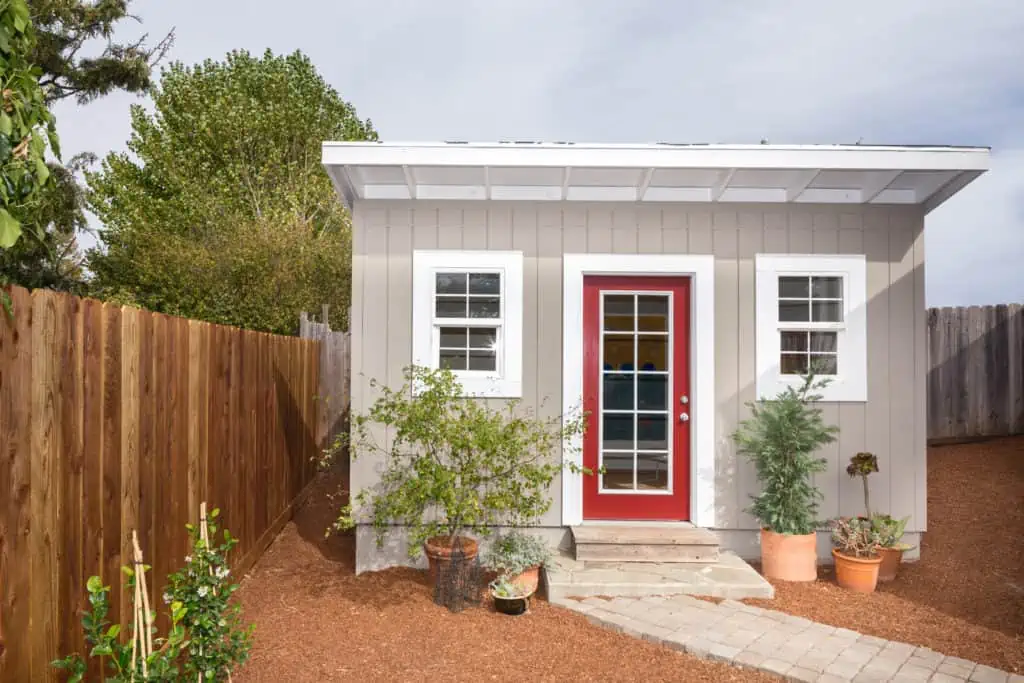Americans forced to relocate due to evictions and foreclosures went up 56% from 2021 to 2022, according to HireAHelper’s latest migration report. Unfortunately, that increase comes as no surprise, considering that federal legislation banning eviction during the pandemic expired in 2021.
That surge in eviction filings continues to affect households: A U.S. Census Bureau survey showed that as recently as February 2023, 40% of respondents felt they were at risk of eviction in the next eight months.
If you feel you might be at risk, here’s everything you need to know about how to avoid an eviction — or if you own your home, how to avoid a foreclosure.
How Does the Government Define “Eviction”?
An eviction is a process by which a landlord is legally enabled to force a tenant to leave a rental property.
This differs from…
…a foreclosure, which is when a money lender seizes a property from the homeowner because they have fallen behind on their mortgage payments.
What happens when you go through the eviction process
The laws governing evictions and foreclosures vary by state, and the timelines and legal processes vary on a case-by-case basis. But as a general overview, here’s what the eviction process typically looks like:
- You will receive an eviction notice (this is both mailed and posted on the property)
- You have 30 days to respond by either vacating and/or paying any outstanding fees (such as overdue rent)
- If you don’t pay your overdue fees and/or vacate, the landlord will likely file a complaint with the court
- You’ll be officially notified of the date that you’ll need to appear in court
- At your court appearance, you’ll be able to make a case as to why you shouldn’t be evicted
- A judge will make a ruling on your case (you might be court-ordered to pay your fees and/or vacate; if you fail to do so, law enforcement can get involved to uphold the judge’s ruling; or you might win your case, in which case the eviction notice will be voided and removed)
“A U.S. Census Bureau survey showed that as recently as February 2023, 40% of respondents felt they were at risk of eviction in the next eight months.”
What happens when you go through the foreclosure process
Meanwhile, the foreclosure process can be a little more varied, but often looks like the following:
- You might begin accruing late fees just days after you miss a payment on your mortgage
- 30 days after a missed mortgage payment, a borrower (aka homeowner) is considered “in default” of their payments (at this time, it’s important to reach out to the bank or lender and attempt to communicate any hardships or make arrangements to avoid further penalties)
- Approximately 3-6 months following a missed mortgage payment, lenders can begin the foreclosure process.
- Accessable also to the public, you will receive a notice of foreclosure which will outline whether the foreclosure type is judicial, power of sale, or a strict foreclosure (the foreclosure type dictates the timeline, options, and proceedings for the homeowner)
See prices for movers by the hour – instantly.
Read real customer reviews.
Easily book your help online.
Your Renter’s Rights and Homeowner’s Rights
While it’s a great idea for tenants and property owners to get legal counsel if they face an eviction or foreclosure, it also helps to get educated on your rights as a tenant.
Renter Rights
“Renters rights” refers to a broad set of protections for tenants. They help prevent landlords from evicting tenants anytime they simply want to, specifically without cause. While you should study up on local tenant rights in your particular region, and your particular situation, here are some things to know:
- There are strict processes governing evictions. Your landlord can’t just lock you out of your apartment or force you to leave out of the blue! Steps they must take include providing notice in writing and giving you the chance to appear in court (see above).
- If you’re taken to court, you don’t necessarily have a right to a government-provided attorney like you would in a criminal case. Be prepared to seek legal counsel on your own.
- Evictions don’t happen overnight. There’s usually a fair and reasonable timeline governing the expectation that you vacate your home, even if your landlord has grounds to ask you to leave. Timelines vary by state and region, as well as your unique situation.
- Your lease is the guiding contract in eviction disputes. You should be able to produce this document and use it to prove you’re living within established guidelines.
Homeowner Rights
Homeowners have rights, too, of course. Here is what to know if you might be facing foreclosure:
- You have the right to remain on your property while seeking to dispute or prevent foreclosure. This is true up until you are court-ordered to vacate, at which time you are given a certain date to vacate.
- You have the right to retain an attorney, but one might not be granted to you for free the way one is in a criminal court case. You should look into laws in your area and see what’s available to you in your financial situation.
- Many services try to swoop in when people are facing foreclosure and take advantage of the situation by pretending they can help or offering too-good-to-be-true foreclosure resources. Just so you know, you’re protected by law from harassment, scams, or egregious sales tactics. Your legal counsel can help with cease-and-desist notifications, but simply making these entities aware that you know your rights can go a long way.
- You have a right to participate in all meetings, settlement conferences, and court hearings regarding foreclosure of your home.
- Most importantly, you have the right to settle your balance on your home and retain ownership up to the date that it is foreclosed on.
How To Stop an Eviction
If you’re concerned about being forced out of your home, but you’re not yet facing this reality, you can still take action.
Here are a few steps you can take now to avoid a foreclosure or stop an eviction:
- Communicate your intentions: “Well, of course I want to stay in my home,” you might be thinking. But your intentions might not be that obvious to an institution like a bank or property management company. It can be helpful to reach out to a real person and explain that you would like to try and resolve the situation at hand. Even if you need a little time to sort things out, you’re more likely to keep matters from escalating in the meantime if you communicate your intentions early (and then, of course, back them up with actions).
- Be proactive — and act fast: In many cases, eviction and foreclosure cases can be resolved by taking action to resolve the issue at the center of the case. This might be a matter of paying off an outstanding balance or making repairs. The sooner you demonstrate your willingness to resolve the matter, the more likely your landlord, lender, or the other party will be open to pausing proceedings and working with you.
- Consider taking out a loan: Many times, evictions and foreclosures come down to money issues, like late payments. Taking out money from a third-party to settle the matter is not always a possibility, or the smartest move. However, let’s say you missed a mortgage payment during a time of financial hardship, but you’re now gradually getting back on your feet. Taking out a loan that protects your investment and allows you to avoid moving fees might be worthwhile in the long run, since you know you’ll be able to pay it back (while still continuing to make mortgage payments on time going forward). Financial consultants can help you determine if this is the right choice for you. Bonus tip: For unbiased advice, seek out consultants who aren’t attached to a particular loan institution.
- Learn about free resources in your area. There are many government and not-for-profit resources that can help you navigate the complexities of an impending eviction or foreclosure. Learning what’s available in your specific state and city can save you a lot of headaches and heartaches. Experts with deep knowledge of the intricacies of your state’s laws can point you toward websites, forms, legal counsel, financial experts, and others to either stop an eviction or at least get help with the process along the way.
How To Avoid a Foreclosure
If you’ve already been served an eviction notice, or if you’re facing a potential foreclosure, there are still a few things you can — and should — do right away.
How to stop a foreclosure should always include these crucial things:
- Seek legal counsel. It helps to know your rights so that you’re not taken advantage of. However, you’ll also want to prepare the best possible defense in case you need to appear in court. Your landlord, a property management company, or a lender will surely bring an experienced attorney to these proceedings; you’ll stand the best chance by coming with one of your own — or consulting with one in advance.
- Consider your options for moving. Even if, understandably, you don’t want to leave, planning ahead can save you some money and anxiety, if worse comes to worse. Your plans might involve staying with friends or family for a while or getting a short-term rental in the area. You might want to get in touch with moving or storage companies and request quotes, just to get a sense of how much it will cost to move and what your options will be.
Knowledge Is Power
It’s stressful and scary facing the possibility of losing your home, but you can take some comfort knowing that there’s an entire process that needs to play out before that happens, and you’ll have a lot of opportunities to try and stop the eviction or foreclosure from progressing before it takes place.
The most powerful tool in your arsenal is knowledge. Understanding the legal processes involved and knowing your rights can mitigate your anxiety — but, more importantly, it can help you prepare the best possible strategy to avoid an eviction or foreclosure altogether.










